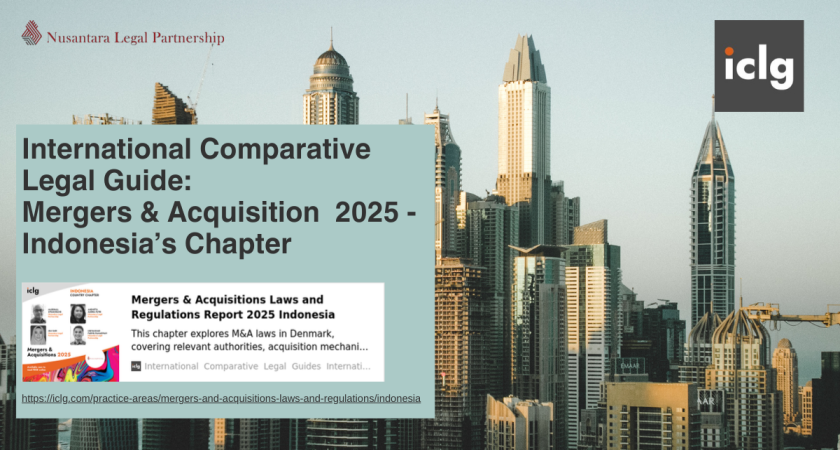When expanding into foreign markets, companies may need to form an equity joint venture, whether due to legal requirements on local ownership or for strategic reasons such as market access, cost efficiency, or operational synergies.
However, partnering with a foreign entity introduces additional challenges, including regulatory complexity, cultural differences, and divergent management styles. Misaligned expectations and communication issues are common pitfalls.
To mitigate these risks, it is essential to conduct thorough due diligence on the prospective partner and to enter into a comprehensive joint venture agreement. This agreement should define the venture’s objectives, governance, capital contributions, and exit mechanisms.
This guide outlines the key legal and strategic considerations of international joint ventures to help businesses structure successful cross-border partnerships.
1. What are the key types of joint ventures in Indonesia? Are joint ventures recognized as a distinct legal concept?
Joint ventures (“ JVs ”) are not recognized as distinct legal entities under the Indonesian law. Instead, the term is generally used to refer to a business collaboration between two or more parties, commonly established through one of two structures: (i) incorporated (equity-based and incorporated in a special purpose vehicle JV company) and (ii) contractual (unincorporated).
A corporate JV shall be established as a limited liability company (“ LLC ”) as per Law No. 40 of 2007 on Limited Liability Company (“ Company Law ”), which is all determined based on their shareholding and shareholder rights. When the involving foreign party is a Corporate JV, it can be incorporated through the new LLC establishment, merger, and acquisition. Any LLC with a foreign party as one of the shareholders will be deemed a Foreign Investment Company
(Perusahaan Penanaman Modal Asing or “ PMA Company ”).
A contractual JV, on the other hand, does not involve any forming, merging, or acquiring of a new legal entity. Instead, parties collaborate based on a contract to undertake a specific project or activity. This type of JVs is common in sectors such as construction (e.g., joint operations) and oil-and-gas (e.g., production-sharing contracts).
2. Are there specific legal or regulatory provisions applicable to foreign joint venture partners?
There are no specific legal or regulatory provisions that apply directly to foreign JVs or partners in their capacity as foreign entities. Instead, the Company Law and Foreign Investment Law govern the establishment of LLCs that involve partially or wholly owned foreign entities. Please refer to our response to Question 3 below for further details.
3. Are there jurisdiction-specific considerations that influence the structuring of a joint venture?
When incorporating a Corporate JV in a form of a PMA Company with involvement of foreign party, the company should pay close attention and fulfil the following list of provisions during the establishment:
(i) An LLC must be established by, at least, 2 entities, regardless of their domestic or foreign origins. This provision is a general requirement that applies to all LLCs,including those established as PMA Companies;
(ii) A PMA Company must comply with the minimum paid-up capital of IDR 10 billion, or around USD 614,000, requirement that must be invested immediately upon the company’s establishment (Article 12 of the Investment Coordinating Board Regulation No. 4 of 2021 concerning Guidelines and Procedures for Risk-Based Business Licensing Services and Investment Facilities ( “BKPMR 4/2021” );
(iii) Prior to the establishment, the parties intending to establish a PMA Company should also be advised or conduct prior research on the list of business sectors that are closed, open, or conditionally open for investment as per the appendix of Presidential Regulation No. 49 of 2021, which amends Presidential Regulation No. 10 of 2021 on Investment Business Fields ( “PR 49/2021” ) and Government Regulation No. 28 of 2025 on Implementation of Risk-Based Business Licensing ( “GR 28/2025” ).
4. Is the formation of a joint venture subject to prior approval or notification to antitrust or competition authorities in Indonesia?
In general, the Indonesian competition law prohibits a range of restrictive contracts, agreements, or actions, or abusive behaviours including mergers, consolidations, and acquisitions that may result in monopolistic practices and/or unfair business competition (“MPUBC”) , broadly defined as the concentration of economic power by one or more business actors, resulting in control of the production and/or marketing of certain goods and/or services, thus resulting in unfair business competition and potential harm to public interests.
To prevent MPUBC in the mergers, consolidations, and acquisitions, the competition law requires the Corporate JVs to submit the notification of any merger, consolidation, and acquisition no later than 30 working days after the effective date of such merger, consolidation, and acquisition, upon fulfilment of certain requirements relating to the threshold of asset value and/or sales value following the merger, consolidation, and acquisition.
The relevant merger, consolidation, and acquisition must fall within the threshold of the following asset and/or sales value:
- the combined Indonesian asset value exceeding IDR 2.5 trillion (approximately USD 148 million) during the last financial year, or IDR 20 trillion (approximately USD 1.2 billion) for business actors in the banking sector; or
- the combined Indonesian sales value exceeding IDR 5 trillion (approximately USD 296 million) during the last financial year.
The asset or sale value is calculated based on the total asset and/or sale value of the parties’ assets and sales in Indonesia at the group level.
5. Are there restrictions or requirements concerning the contribution of assets to a joint venture entity?
Shareholders may contribute capital in the form of money or other assets that can be valued in monetary terms. Contributions in the form of non-cash assets such as land, equipment, or intellectual property must be calculated based on the fair market value or independent appraisal. If the capital contribution includes immovable property, it should be announced in a newspaper within 14 days. (Article 34 paragraphs (1) and (2) of Company Law).
For the minimum contribution of assets to a PMA Company meeting the minimum investment requirements, please refer to our response to Question 3 above.
6. Which are the primary legal and commercial issues to consider when structuring a joint venture?
In general, a PMA Company may be fully owned by foreign investors. However, certain business sectors are subject to foreign ownership restrictions. They require partial ownership by local entities. For instance, a JV in the form of PMA Company operating in the construction sector may have a maximum of 67% foreign ownership of a non-ASEAN country, or up to 70% of an ASEAN country. In this regard, a foreign investor needs to check whether their intended business activity falls within such foreign restrictions before deciding to proceed with the corporate JV.
7. Are there local governance requirements concerning the appointment of officers or board members?
Indonesian Company Law is the main source of reference on the appointment of officers and board members (i.e., directors and commissioners) in an LLC. An LLC must have, at least, one director and one commissioner. These individuals may not have been declared bankrupt, may not have been members of a management responsible for the bankruptcy of another company, and may not have been convicted of causing financial losses to the state or financial sector within the last 5 years.
In addition to the Company Law, sector-specific regulations—particularly in banking, insurance, and capital markets— may have additional requirements. For example, a candidate of the Board of Directors and Commissioners of a bank must undergo a fit and proper test conducted by the Financial Services Authority (Otoritas Jasa Keuangan or “OJK”) before the bank or company license can be issued by OJK. Furthermore, all foreigners are prohibited from occupying certain positions as per GR No. 34 of 2021. These positions are mainly those that involve personnel supervision, manpower procurement, and/or human resources. Foreigners may still hold directorship positions as long as they do not manage human resources.
8. Is it permissible to choose a foreign governing law for the joint venture?
Foreign governing law is generally permissible in a contractual JV arrangement in Indonesia, provided that all parties agree to its terms and there are no sector-specific legal provisions prohibiting it. However, it should be noted that choosing a foreign governing law for contractual terms is not practical if the contractual JV intends to be active solely in Indonesia due to a common obstacle in the event of disputes between the Parties. Indonesian Courts are not equipped to examine cases from the view of foreign laws and judges will often refuse to interpret agreements based on foreign laws.
For the Corporate JVs in the form of LLCs, Indonesian law must apply since LLC must be subject to Indonesian law and the contents of the JV Agreement will need to be incorporated in the LLC’s Articles of Association, which must be drawn in a form of a notarial deed.
The article above was prepared by Audria Putri (Senior Associate), Muhammad Irfan Yusuf (Associate), and Albert Barnabas (Trainee Associate) .









